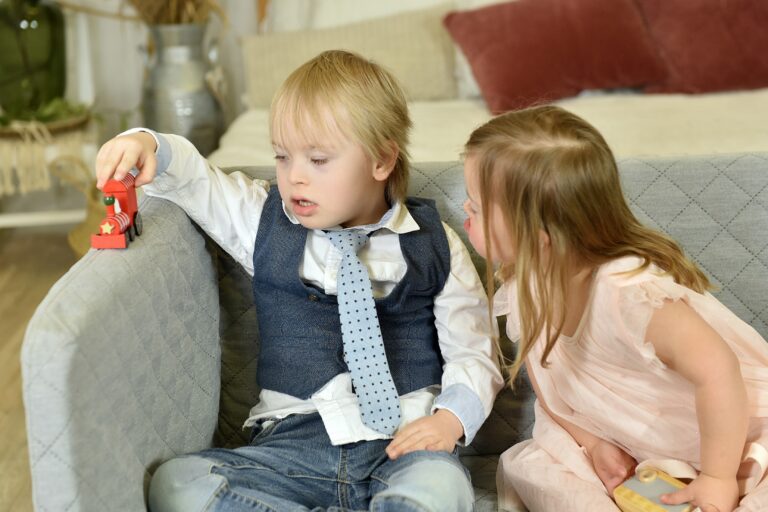Recommended Books For First Time Foster Carers
This page contains affiliate links.
If you are only just starting your foster care career then you might feel a little loss. It can be a big thing for first time carers and that’s understandable. I was in that position once and I felt like I was having a lot of information thrown at me and not enough time to process it all, however I love to read and that’s how I started finding books that are great for foster carers.
I’ll list all the books that I found super helpful in this post and I hope that it helps others who are only just starting on this path. Remember, you don’t need to know everything and at the same time it’s never too late to learn something new. Every child is different and that’s why continued learning is important!
Perfect Books For Foster Parents
Take a look below for some of the best books for first time foster carers. Although, if you have been a foster carer for a while and still want to learn, you may find some of the below suggestions valuable and interesting to help you become the best foster carer that you can be!
The A-Z of Therapeutic Parenting: Strategies and Solutions – Sarah Naish
Therapeutic parenting is a highly nurturing approach, particularly beneficial for children who have experienced trauma or struggle with attachment issues. This book offers essential guidance on how to implement therapeutic parenting effectively, equipping caregivers with the knowledge and tools needed to support their child’s emotional and behavioral development.
The A-Z of Therapeutic Parenting presents a clear intervention model, making it easy for parents and caregivers to address common challenges. Covering 60 frequently encountered issues—such as aggression, anxiety, and sleep difficulties—it provides insight into potential triggers and practical strategies for responding. Written in a clear, accessible style, this book is an invaluable resource for anyone engaged in therapeutic parenting.
The Foster Parenting Toolbox: A Practical, Hands-On Approah to Parenting Children in Foster Care – Kim Phagan-Hansel
Caring for children from difficult backgrounds presents unique challenges, often requiring more patience, resilience, and advocacy than many expect. For those welcoming children from broken or traumatic pasts through the child welfare system, the journey can feel overwhelming, with rewards that sometimes seem small in the face of daily struggles. Navigating the complexities of foster care, understanding legal processes, and meeting the emotional and physical needs of these children demands continuous learning and support. Fortunately, foster and resource parents no longer have to face these challenges alone—they now have a trusted guide to turn to for advice, reassurance, and a sense of community.
The Foster Parenting Toolbox is a comprehensive resource designed to support foster parents at every stage of their journey. Whether you’re just beginning or have cared for hundreds of children, this book provides invaluable wisdom, real-life experiences, and practical solutions to the toughest situations. With contributions from over 100 foster parents and professionals—including caseworkers, social workers, judges, and advocates—this book offers critical insight and guidance. A must-have reference, it serves as a constant companion, providing foster parents with 24/7 access to expert advice, encouragement, and the tools needed to navigate the challenges of foster care.
The Simple Guide to Child Trauma: What It Is and How to Help – Betsy de Thierry
The Simple Guide to Child Trauma offers clear and accessible answers to essential questions: What is trauma? How does it impact children? How can adults provide meaningful support? Designed for parents, caregivers, and professionals, this book serves as an ideal starting point for anyone working with a child who has experienced trauma. It breaks down complex concepts into easy-to-understand language, helping adults recognize the emotional and behavioral effects of trauma and offering practical strategies to support healing and recovery.
Beyond understanding trauma’s impact, this guide provides reassuring advice to empower caregivers in facing the challenges of supporting a traumatized child. It not only equips adults with effective tools to foster resilience and emotional well-being but also helps them maintain their own strength and confidence in the process. Whether you’re a parent, teacher, social worker, or therapist, The Simple Guide to Child Trauma is an invaluable resource for creating a stable, nurturing environment where children can heal and thrive.
The Simple Guide to Attachment Difficulties in Children: What They Are and How to Help – Betsy de Thierry
This book provides clear, straightforward answers to these crucial questions—and much more. Far beyond a simple introduction, it offers valuable insights, practical strategies, and hands-on advice for supporting children with attachment challenges. It also tackles complex topics, such as the difference between trauma and attachment, emphasizing that understanding attachment is just one part of caring for a traumatized child. Packed with useful guidance, this book is an essential resource for any parent or caregiver working with children who have experienced attachment difficulties.
Nobody’s Child – Kate Adie
What’s your name? Where were you born? When is your birthday? These are simple questions we answer throughout our lives—but what if you didn’t know the answers?
Journalist and BBC Radio 4 presenter Kate Adie explores the extraordinary, moving, and inspiring stories of children who have grown up without a mother, father, or even a name to call their own. Drawing from her own experience as an adopted child, she delves into the lives of remarkable individuals who have survived the trauma of abandonment. Through their stories, she offers a deeply personal and thought-provoking look at identity, resilience, and what truly shapes who we become.
Why Love matters – how affection shapes a baby’s brain – Sue Gerhardt
Why Love Matters explores the crucial role of loving relationships in shaping brain development during early childhood. It explains how these early interactions influence emotional and physical health throughout life. This updated second edition builds on the success of the first, incorporating the latest scientific research on genetics, the mind-body connection, and the impact of pregnancy on a baby’s future well-being.
The book highlights the profound effects of early stress on a child’s developing nervous system. When early relationships are disrupted, the child not only adapts emotionally but undergoes neurological changes as well. Research now shows that stress in infancy can weaken the brain’s emotional and immune systems, increasing vulnerability to long-term challenges such as depression, addiction, antisocial behavior, eating disorders, and even physical illness. Why Love Matters provides essential insight into how early love and care lay the foundation for a healthier, more resilient future.
Therapeutic Adventures with Autistic Children – Jonas Torrance
This inspiring book explores the power of creative therapies in supporting autistic children, offering a deeply personal and uplifting perspective on their growth and development. Each chapter tells the story of a child with autism, highlighting how therapy played a crucial role in addressing their unique challenges.
Covering a range of behaviors common in autism, such as intense anger and obsessive tendencies, the book showcases diverse therapeutic approaches—from drawing and dance to meditation and martial arts—tailored to each child’s needs and interests. At its heart, this book emphasizes the transformative impact of a strong, nurturing relationship between therapist and child, demonstrating how connection, creativity, and trust can foster meaningful progress.
How to Look After Yourself – Adams Media
Do you often put others’ needs before your own, leaving yourself feeling drained, taken for granted, or unfulfilled? Perhaps you struggle to prioritize your own well-being, or you know someone who always helps others at their own expense. Maybe you’ve noticed yourself slipping into this pattern and want to make a change before it’s too late. If any of this sounds familiar, How to Look After Yourself First is the guide you need to reclaim your happiness and well-being.
While caring for others is important, constantly prioritizing them over yourself can be harmful. This book helps you find the right balance, showing you why self-care isn’t selfish but essential. You’ll learn how to set boundaries, take back control of your life, and embrace the power of saying “no.” Through real-life examples, practical advice, and insights into why we feel compelled to fix others’ problems before our own, you’ll gain the tools to break the cycle. How to Look After Yourself First will empower you to focus on your own needs, cultivate true happiness, and live life on your own terms. Take the first step toward self-care and start prioritizing yourself today!
Why Is Reading Books On Fostering Good For Foster Parents?
Reading books on fostering is incredibly beneficial for foster parents because it provides them with knowledge, guidance, and emotional support as they navigate the challenges of caring for children who have experienced trauma, neglect, or instability. Here’s why reading about fostering is so important:
1. Understanding Trauma and Attachment
Many foster children have faced difficult early experiences that affect their emotional and behavioral development. Books on fostering help parents understand trauma, attachment difficulties, and how these experiences shape a child’s responses to care and discipline.
2. Practical Parenting Strategies
Foster parenting requires specialized approaches to communication, discipline, and emotional support. Books provide expert-backed strategies for managing behaviors, building trust, and fostering resilience in children.
3. Emotional Support and Encouragement
Foster parents often face emotional highs and lows. Reading real-life stories and expert advice can offer reassurance, reminding them they are not alone and that their efforts make a difference.
4. Navigating the Foster System
Understanding the legal and procedural aspects of fostering—such as working with social workers, court systems, and birth families—is crucial. Books can help foster parents feel more prepared and confident in their role.
By reading books on fostering, parents gain valuable insight, support, and the tools they need to provide the best possible care for the children they welcome into their homes.







